a few unrelated things have rubbed together in an unexpected way.
Firstly I see via Journalista that my old pal Phil Elliott is posting his earliest material online: "This could almost be considered one of the founding documents of the U.K. small-press movement of the 1980s, I suspect. Here’s the complete minicomic introducing one of the most well-regarded series from that period, Elliott’s Tales of Gimbley." He's putting them up in sequence, a new one each day.
This coincides with a month of broadcasts/podcasts AT RESONANCE 104.4 FM devoted to myself in a program titled Panel Borders. It includes a good interview withAlan Moore just about From Hell and A Disease of Language. There are a couple of anecdotal details in there that I didn't know about. The first of these podcasts catches me and Paul Gravett in a Nottingham pub on my recent visit to Blighty, in which we are queried at some length about the first British comics small press scene by Alex Fitch and Oli Smith, who has an interest in the subject on account of casting himself as the reviver of said scene.
I've become wary of talking too much about the '80s small press thing, in the same way that I decided not to contribute a reminiscence about the '90s self publishing thing when Jeff Smith was rounding them up recently. It would be too easy to be smug and make it sound like a bigger event than it was. I haven't worked out a theory or an official summary of events (leaving aside the fictionalized version in How to be an Artist). On the other hand, most accounts of the situation are usually incorrect. I once took issue with Roger Sabin's version, of which it was not so bad that it was incorrect as that he trotted it out more than once with only slight variations.
The thing about the original small press comics scene is that there was a seeking to make comics into a kind of café thing. The exciting challenge was to make the medium interact with the regular passing parade. Objects were creatively undefined, and poetry music and mail-art were in the mix. Getting an exhibition in a coffee house or a Mayfair gallery, or a review or interview in the music press or in an arts context, or selling stuff at the Saturday open air market or at CND rallies were a few of our opportunities to connect, as I recall. In the end this all failed and the subject got stripped down to its least interesting components and sucked into the vortex of comic books (meaning the American idiom) which I regarded as the enemy then and still do now (elsewhere referred to, by me, as the great extravaganza of baloney). I'm worried I may have said something in that interview (above) to the effect that Paul Grist is an example of an artist who has managed to eke out a living from his art but that he is not as original now as he was in his first small press outings. I did not make it clear that I apply the same criticism to most of my own work since then too, and that it is in fact a general principle in the matter of making a living from art; the longer you commit to it the more it will wear you down. But my point was to indicate a successful artist who had come out of the small press milieu, before I confused the issue.
In this 2005 interview with Phil Elliott, Phil shows an old photo that brought back the spirit of 1982. There was a nucleus of folk who had connected in different ways, but mostly through Paul Gravett as old high school chums (I don't think there was any residue from his time at Cambridge). Paul found me in late 1981 showing my wares in an Amateur Press association, which really wasn't the place for them but I was frustrated and without a way forward, and he found Glenn Dakin doing a regular twice-monthly page in his college paper in Manchester, and he drew our attention to many other things happening, like the VIz guys turning out their scurrilous comic paper from a bedroom in Newcastle and taking it to sell at the local pub. It would later sell millions and be Britain's third biggest selling magazine after the two TV guides (the rest of the top ten were all womens' magazines, needless to say.) And stuff happening in other countries, Lat in Malaysia, Chester Brown in Canada etc. etc. Paul's contribution, prior to actually publishing the groundbreaking Escape magazine (and eight or nine Escape albums) I mean, was knowing what was going on and where.
The photo shows Phil Elliott and Ed Hillyer as bookends, both of whom I have worked with over extended periods and in the middle is Jerry Thackray, alias Everett True, who was very much a part of the early scene, though I was never sure what he was going to amount to. He is "best known by many music fans as the man who introduced Courtney Love to Kurt Cobain in 1991." he turned up in my neck of the woods recently:
LEGENDARY British music critic Everett True has rankled the local music industry with a scathing attack on Australian street press, accusing local writers of going too soft on Aussie bands.Hey, True, if you're still in the vicinity, drop me a line.
"Australians don't have much respect for the music press - it runs counter to their culture. Australian rock is all about 'Good on ya, mate - well done for getting up on stage and switching that amplifier on'," True writes in his blog.
"The idea of anyone actually daring to criticise musicians for the sound they make is almost heresy. Everyone is treated equally, which means no knocking anyone back, however great the temptation (that'll be why Australian rock is best known to the outside world for such musical abominations as Silverchair, The Vines and Savage Garden)."
Labels: British small press scene
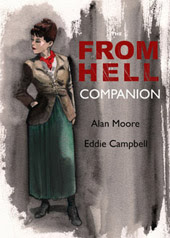
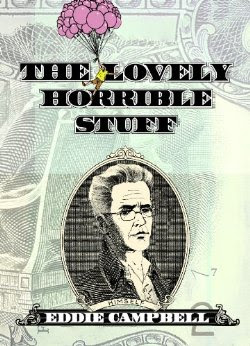

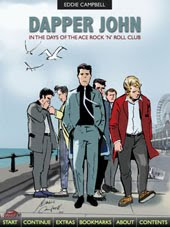
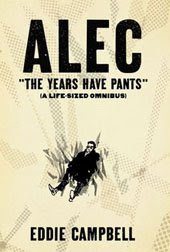
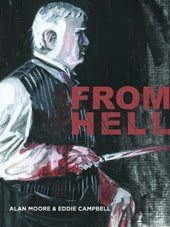
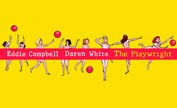
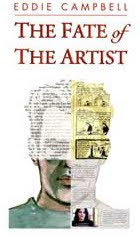
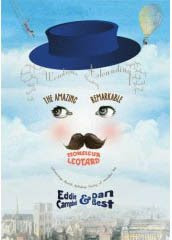
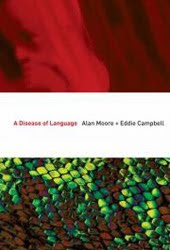
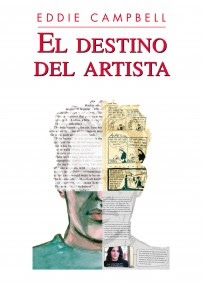
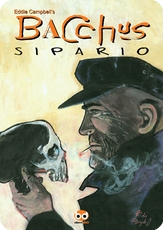
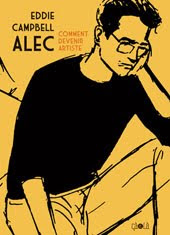

7 Comments:
I'm still in the vicinity, although not quite sure why, although those jacarandas you mention in another blog play quite a part in it. I'm on everett@planbmag.com if you'd like to hook up.
and that's Paul Grist on the far left. Got to go buy a fish now.
Thanks for the reminiscences, Eddie. I had a real fascination with the UK scene in the mid '80s (still do). I still dream of fantastic things like the Fast Fiction stall, Escape magazine happening locally, and all the great mini-comics I never got to see...
cheers,
--Rb
www.poopsheetfoundation.com
"...if the experience is too intense, cataplexy can set in, leading to muscular collapse and possible injury. In rare cases the consequences are graver still. Anthony Trollope suffered a stroke undergoing this experience, while reading a now forgotten Victorian novel, Vice Versa. And the ancient Greek painter Zeuxis, reacting to the portrait of a hag he had just made, actually died of it." Jim Holt's gone and written a 'history of jokes and philosophy': www.guardian.co.uk/books/2008/oct/25/jokes
Meanwhile Posy Simmonds talks about Tamara Drewe, http://www.guardian.co.uk/books/interactive/2008/oct/16/posy-simmonds-tamara-drewe
And that's quite enough links from me.
Ben Smith
Aussie rock? AC/DC must be the most wellknown, no?
long time ago.
before my time here even
Good to know that Everett True is a real human being. I've been reading The Stranger here in Seattle for the last ten years and I was never clear whether True was real or a fictionalized character used by the Stranger staff to engage in various sorts of over-the-top music criticism.
Post a Comment
Subscribe to Post Comments [Atom]
<< Home